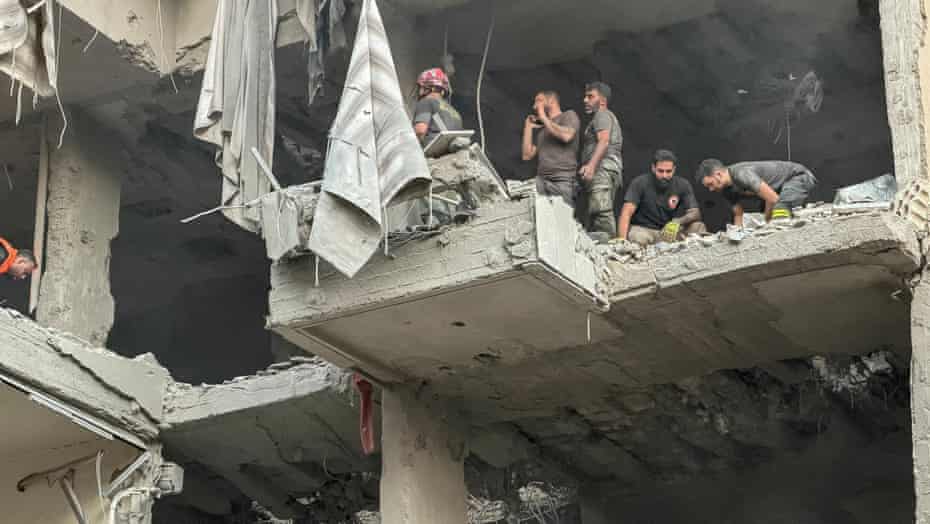Israel has dramatically escalated its confrontation with Hezbollah after an airstrike in Beirut’s southern suburbs killed one of the group’s most senior military commanders. The attack, which took place on Sunday evening in the densely populated Haret Hreik district, claimed the life of Haytham Ali Tabatabai, Hezbollah’s chief of staff, according to the Israeli military.
Lebanon’s health ministry reported that at least five people were killed and 28 wounded in the strike, while the national news agency said three missiles were fired at the targeted building. Footage from the scene showed extensive damage to residential blocks in the area, a long-standing Hezbollah stronghold.
Hezbollah later confirmed Tabatabai’s death, describing him as “the great commander” and condemning what it called “a treacherous Israeli attack on the Haret Hreik area”. The group did not specify his official role, though Israel identified him as the organisation’s chief of staff and accused him of leading efforts to rebuild its military capacity.
The strike comes almost exactly a year after a ceasefire ended 14 months of clashes between Israel and Hezbollah, raising fears of renewed conflict. Israel has stepped up air operations in southern Lebanon in recent weeks, saying they are aimed at preventing Hezbollah from re-establishing a military presence in the hills north of the border. Officials in Jerusalem argue the campaign is also intended to pressure Lebanese authorities and the army to accelerate efforts to disarm the group, a central condition of last year’s ceasefire agreement.
Prime Minister Benjamin Netanyahu told his cabinet before the strike that Israel would continue to fight “terrorism” wherever necessary. “We will continue to do whatever is necessary to prevent Hezbollah from re-establishing its ability to threaten us,” he said. Following the attack, his office issued a statement declaring: “In the heart of Beirut, the IDF attacked the Hezbollah chief of staff, who had been leading the terrorist organisation’s buildup and rearmament. Israel is determined to act to achieve its objectives everywhere and at all times.”
Despite the operation, the Israeli Defence Forces insisted on Sunday evening that they “remain committed” to the ceasefire.
The United States was not informed in advance of the strike, according to a senior official quoted by Axios. Washington was notified immediately afterwards, though another official said the administration had been aware for days that Israel was planning to escalate its campaign in Lebanon.
Tabatabai, 58, had been a central figure in Hezbollah since joining as a teenager in the early 1980s. He survived an Israeli assassination attempt in 2015 and was sanctioned by the United States the following year, which accused him of commanding Hezbollah’s special forces in Syria and Yemen. The US offered a reward of up to $5m (£3.8m) for information leading to his capture.
He played a key role in supporting Bashar al-Assad’s forces in Syria and was believed to have trained Houthi fighters in Yemen. Both groups maintain close ties with Iran, Hezbollah’s principal backer.
Tabatabai had previously evaded Israel’s campaign against Hezbollah’s senior leadership during the 2023–24 war, which was triggered by Hamas’s incursion into southern Israel on 7 October 2023. That conflict saw the killing of Hezbollah’s long-time leader Hassan Nasrallah in an Israeli strike in September 2024, and by the time of the ceasefire weeks later, much of the organisation’s military command had been eliminated.
Hezbollah insists it has complied with the ceasefire terms, withdrawing its forces from the border region and allowing the Lebanese army to deploy there.
Lebanon’s president, Joseph Aoun, condemned the latest strike and urged international intervention. “Beirut reiterates its call to the international community to assume its responsibility and intervene firmly and seriously to stop the attacks on Lebanon and its people,” he said in a statement.



